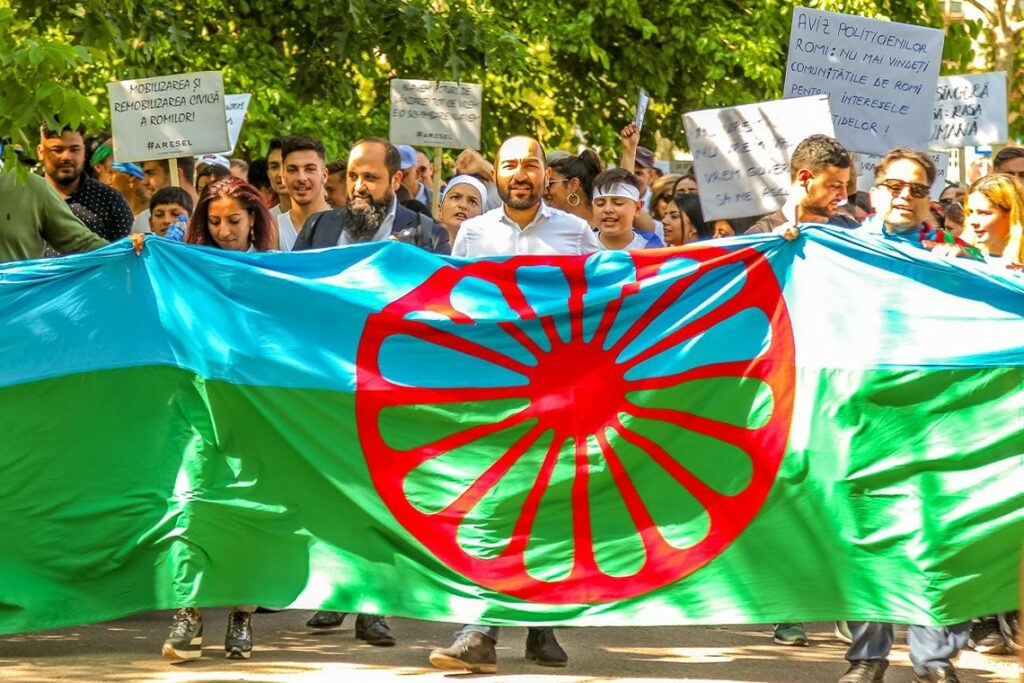The European Union is focused on external threats to democracy: disinformation, authoritarianism, foreign interference. However, it continues to ignore a major internal vulnerability — one that anti-democratic actors have understood and exploited for years — the union’s record on inclusivity and minority rights.
As European commissioners have acknowledged ahead of World Roma Day on Tuesday (8 April), Roma citizens often encounter widespread racism and marginalisation, and suffer persistent disparities in access to key services - spanning quality education, employment, housing and healthcare – which go against EU principles of democracy and equality.
In Italy, over 15,000 Roma live in irregular housing, vulnerable to forced eviction. In Slovakia, an education system described as one of apartheid pushes Roma children towards poverty. Hungary, too, has been warned about Roma discrimination in its schools. Meanwhile, the European Union Agency for Fundamental Rights (FRA) survey found that in 2021, 33% of Roma felt discriminated against because of being Roma when looking for a job.
Later this year, FRA will publish its 2024 Roma Survey. This will provide the mid-term data for the implementation of the EU Roma Strategic Framework, according to the Commissioner for Equality, Preparedness and Crisis Management, Hadja Lahbib.
The current exclusion isn’t just morally wrong; it’s politically naive. There are millions of Roma voters in countries like Bulgaria, Slovakia, and Romania. They are young, growing, and willing to participate in politics. But they are consistently targeted for vote-buying, digital manipulation, and systemic neglect.
In Bulgaria’s most recent elections, nearly half of the DPS-New Beginning party’s 11.5% vote share came from the Roma community. This support was largely obtained through coercion and vote-buying, exploiting Roma economic vulnerabilities.
Often far-right parties adopt anti-Roma rhetoric to polarise electorates and drive turnout. In Slovakia, far-right groups blame Roma communities for poverty and crime to stoke public fear and mobilise non-Roma voters. Their attacks polarise electorates, distract from structural issues, and create a testing ground for broader anti-democratic tactics — something which Europe’s pro-democratic forces have allowed to happen.
In Romania, ultranationalists like Călin Georgescu exploit anti-Roma sentiment to advance their political agendas. By scapegoating the Roma community, these actors deepen societal divisions and erode trust in democratic institutions. Such tactics not only marginalise the Roma but also destabilise the nation’s broader democratic framework.
Why we need political empowerment
Voter turnout among Roma is still low. Some may call this Roma disengagement. But it’s not. It’s structured disenfranchisement. In Italy, 96% of Roma report they will vote. In Romania, 81%. In Bulgaria, turnout falls to 52% — not due to apathy, but because of pre-existing barriers, intimidation, and manipulation.
Actual turnout drops due to fear, lack of engagement, and disenfranchisement. When political parties contact Roma voters, their likelihood to vote increases significantly. This comes as no surprise when we consider that Roma support for democratic governance and institutional participation consistently outpaces that of non-Roma voters.
Yet, in most countries, mainstream parties rarely engage. Roma are ignored — until the far right comes knocking. In Slovakia, Romania, North Macedonia and Italy, voter empowerment and election integrity campaigns by Roma for Democracy have all increased Roma turnout from 15% to 25%.
Across Europe, Roma organisations are doing what national institutions have failed to do: They are running voter protection efforts in high-risk communities, launching Roma-led civic initiatives with real accountability, building independent media to combat disinformation, preparing credible Roma candidates, and investing in entrepreneurship, education, and cultural strategy as pillars of political agency.
North Macedonian local Roma-led organisations have secured budget transparency, education access, and fair housing through voter blocs and by running candidates in municipal elections. In Hungary, locally elected Roma councillors succeeded in redirecting resources toward Roma-majority schools and infrastructure in segregated neighbourhoods.
In Bulgaria, €50,000 of investment and technical support has enabled Roma mayors and councillors to acquire over €7.5 million in infrastructure and development funding for grossly disadvantaged communities. Similarly, in Slovakia, €120,000 has unlocked more than €15 million in public funds for Roma-majority municipalities — delivered through negotiation, not dependency.
But many of these organisations remain unfunded, excluded from the very frameworks designed to “protect European democracy.” The problem isn’t Roma readiness. It’s Europe’s refusal to engage.
Why we need strategic investment
To address this, instead of funding a tightly controlled “Roma inclusion industry” — an ecosystem that produces reports, hosts dialogues, and reinforces narratives that reassure institutions, the EU should back real grassroots political change. Official evaluations of the EU Framework for National Roma Integration Strategies reveal “little to no progress” in most priority areas and no impact on political empowerment or racism against Roma.
The EU Roma Strategic Framework up to 2030, likewise, remains largely symbolic. In 2018, only 4% of the €1.5 billion allocated under ESF’s Investment Priority had been spent. EU funding directed to Roma projects has not been tracked.
Many member States receiving the most Roma-related EU funds are openly hostile to Roma and showcase the worst governance records and highest corruption risks. In addition, the lack of transparency and accountability is endemic. There is no conditionality on funding disbursement. All the while, engagement with independent Roma civil society remains minimal.
For a truly representative EU community, European nations should invest in political accountability for Roma. Until power shifts to Roma communities fighting for recognition, turnout will stay low, trust will erode, and far-right actors will keep filling the space left by silence.
We also advocate expanding initiatives like the European Democracy Action Plan to include tailored digital literacy and civic engagement programs for marginalised groups, empowering them to recognise and resist manipulative tactics. Crucially, compliance with the rule of law and respect for minority rights must be prerequisites for EU funding. Only then can the European Union credibly approach the European Democracy Shield and resist internal destabilisation.
No system is resilient when an estimated 12 million of its people are governed without representation. And no union is secure when exclusion becomes normalised.


